From possibilities to policies: Transitioning to a disability-friendly Bangladesh

On September 11, during a televised address to the nation, Chief Adviser Dr Muhammad Yunus announced that the government would ensure rehabilitation for the families of the martyrs, as well as those injured during the July uprising.
Later, on October 15, Foreign Adviser Md Touhid Hossain reiterated the same sentiment, saying that the interim government is fully committed to providing comprehensive rehabilitation for those injured during the uprising. As part of their rehabilitation process, the adviser said that the government would ensure job placements for those affected based on their qualifications.
From July 15 to August 5, as per a government report, over 19,200 were injured. Many of them are now having to cope with various disabilities, or injuries that might, at one point, lead to permanent disabilities. Hence, the government's decision to rehabilitate them, including guaranteeing job placements, is a welcome one.
However, can this approach for the victims of the July-August uprising be scaled up to include the entire country? More specifically, can the government improve its existing policies, measures, and infrastructure to build a more inclusive, disability-friendly Bangladesh?
As per the National Survey on Persons with Disabilities (NSPD) 2021, conducted by the Bangladesh Bureau of Statistics (BBS), among the people of Bangladesh, 2.80 percent have at least one disability. Physical disability accounts for the highest percentage with 1.19 percent. Furthermore, statistics presented during an event organised at The Daily Star, titled "Building a Disability-Inclusive and Supportive Workplace Culture in Bangladesh," revealed that the unemployment rate for persons with disabilities (PWDs) was 66 percent in 2021 and almost 73 percent in 2022.
Hence, as the government is looking to rehabilitate the July victims, it can also take this opportunity to develop the existing educational, workplace, and skill development policies and infrastructure for people with disabilities. This, however, is easier said than done.
District social services offices across the country run the "Allowances Programme for Persons with Disabilities," with the objectives of ensuring the socio-economic progress of PWDs and bringing them under a social safety net, among others. As of 2022, the monthly allocation per person was set at Tk 850.
But, as noted by a 2021 Transparency International Bangladesh (TIB) report, several issues plague this allowance programme initiative.
The allowance being offered was already small enough. On top of that, as TIB reported, PWDs had to pay between Tk 1,000 and Tk 3,000 extra to be enlisted in the government's disability allowance scheme. Between Tk 1,000 and Tk 1,500 was further charged illegally at government hospitals to identify PWDs, while an additional Tk 100 to Tk 200 was required for including their names in the designated databases. Cases of extorting money to certify people as PWDs and ensure grants were also reported. Apart from the irregularities and corruption, there was also a lack of supervision and coordination among the government offices tasked with the programme's responsibility.
TIB proposed a series of new policies and allocations aimed at improving the financial stability of PWDs. These recommendations emphasise the need for distinct budget allocations under various ministries to address disability-related issues, alongside a significant increase in the budget for the Ministry of Social Welfare. Other recommendations have also been made aimed at addressing accessibility and skill development issues, more of which we will get into later.
Then comes the discussion on jobs. Currently, a one percent quota is reserved for persons with disabilities and people of the third gender, which is applicable for government jobs of all grades. While this might look good on paper, at least to some, it still fails to take into account that not everyone might be willing to opt for a government job and that not all government offices have the infrastructure necessary to make persons with disabilities feel more inclusive at the workplace.
Also, as noted in the NSPD 2021 report, only 33.78 percent of the PWDs, who are of working age, are employed, and more than half of them are self-employed. The report also points out that of those who are employed, only 12.80 percent of them are females. This data reveals three major issues with the existing policies and infrastructure: a low employment rate among PWDs, limited access to traditional job opportunities, and a low employment rate among women with disabilities.
Under such circumstances, creating jobs for people injured during the July-August uprising and now facing permanent disabilities will be a challenge. Besides, the authorities concerned with overseeing our policies and projects for PWDs have never dealt with such a young group of PWDs, at least not in such a large number at once.
If we are to indeed move toward a more inclusive Bangladesh, the interim government's promises of rehabilitating the injured from the revolution must be strengthened and worked into policies and actionable steps for the entire country.
The corruption mentioned in the TIB report must be eliminated. Oversight is vital in this regard and if the government feels it is low on manpower to carry out this monitoring, steps should be taken to increase their capabilities. The allowance offered to PWDs also requires enhancement—Tk 850 offered as monthly allowances are unacceptable in 2024. PWDs have pointed this out through protests in the past, where they wanted the monthly allowance to be increased to Tk 5,000. Hence, the overall budget allocation for PWDs must be increased, alongside ensuring proper oversight in regard to how this budget is utilised.
A portion of this budget must also be used to improve skill development training facilities for people with disabilities. The PWD employment rate must go up, be it through government jobs or facilitating accessible SME loans for them to start their own businesses and be self-employed. Special consideration must be in place for women as they are highly under-represented and the employment rate is low among them.
It is also vital that the Ministry of Social Welfare works with the Ministry of Education to ensure that PWDs who are still looking to pursue an education face no accessibility issues at their respective school, college, or university campuses. Many PWDs, who are still very young, must not feel that their futures are limited to just the job opportunities offered by the government, and they must get to construct their own future.
Simultaneously, the concerned authorities must continuously work to make the country more disability-friendly by rethinking existing public infrastructure including roads and public transportation systems. Given that this will be a mammoth undertaking, work must be started on this immediately.
The road to a truly inclusive and disability-friendly Bangladesh is undoubtedly long and complex. Yet, by building on existing initiatives, embracing transparency, and fostering collaboration between ministries and stakeholders, the interim government can lay a strong foundation for progress.
This moment in time offers more than just an opportunity for rehabilitation. It is a chance to transform the nation's vision for disability inclusion into a reality that empowers all citizens to thrive.
The question now is whether this opportunity will be seized or allowed to slip away.
Faisal Bin Iqbal is the in-charge of Campus, Rising Stars, and Star Youth.
Views expressed in this article are the author's own.
Follow The Daily Star Opinion on Facebook for the latest opinions, commentaries and analyses by experts and professionals. To contribute your article or letter to The Daily Star Opinion, see our guidelines for submission.

 For all latest news, follow The Daily Star's Google News channel.
For all latest news, follow The Daily Star's Google News channel. 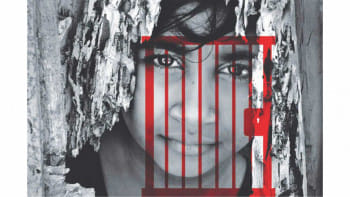
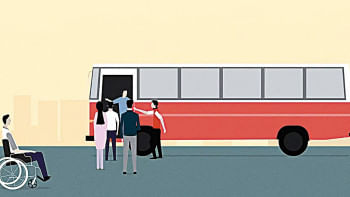

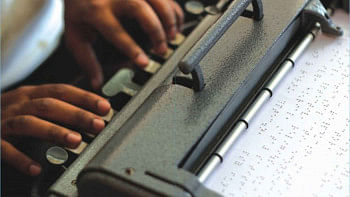



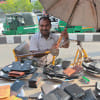


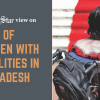


Comments